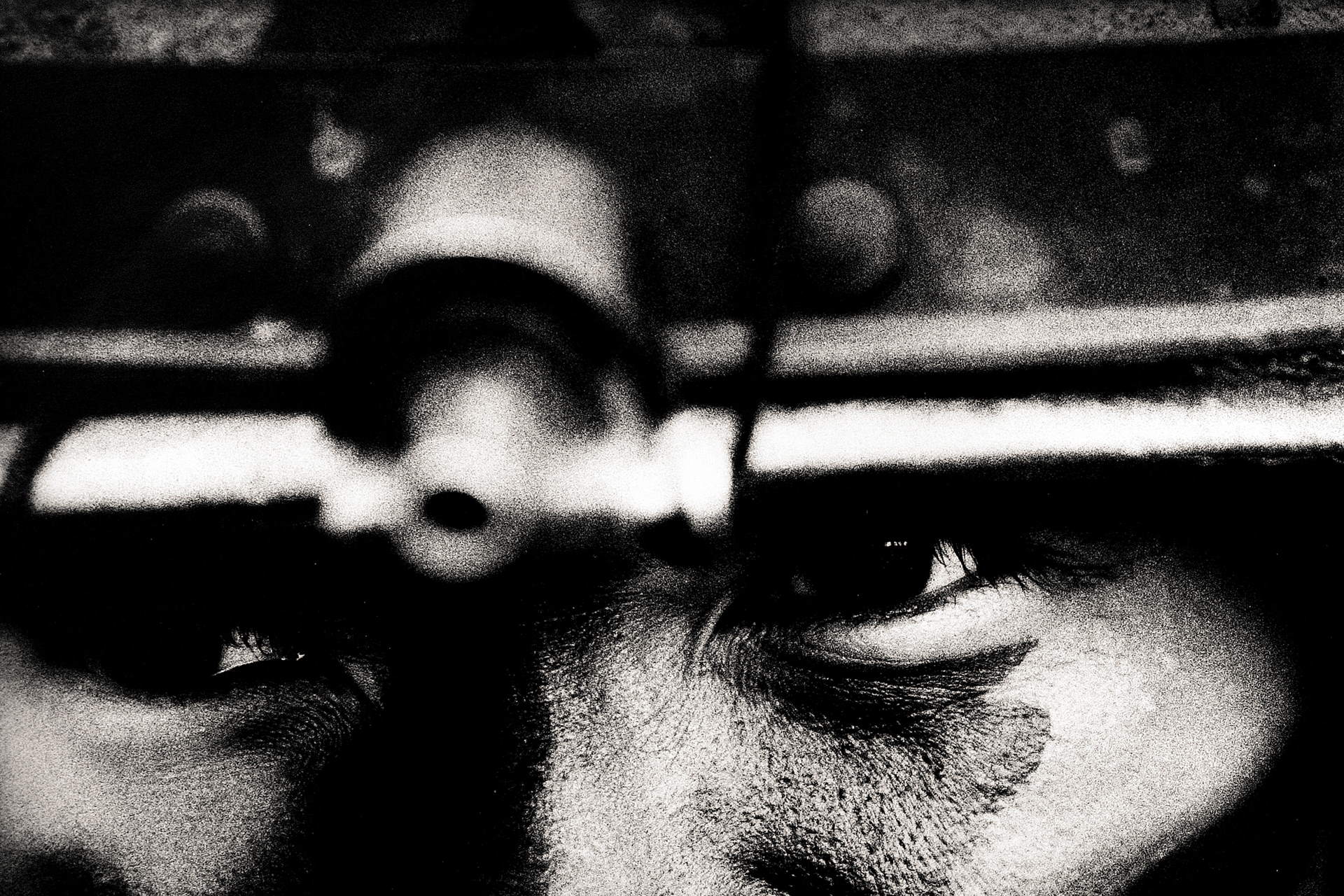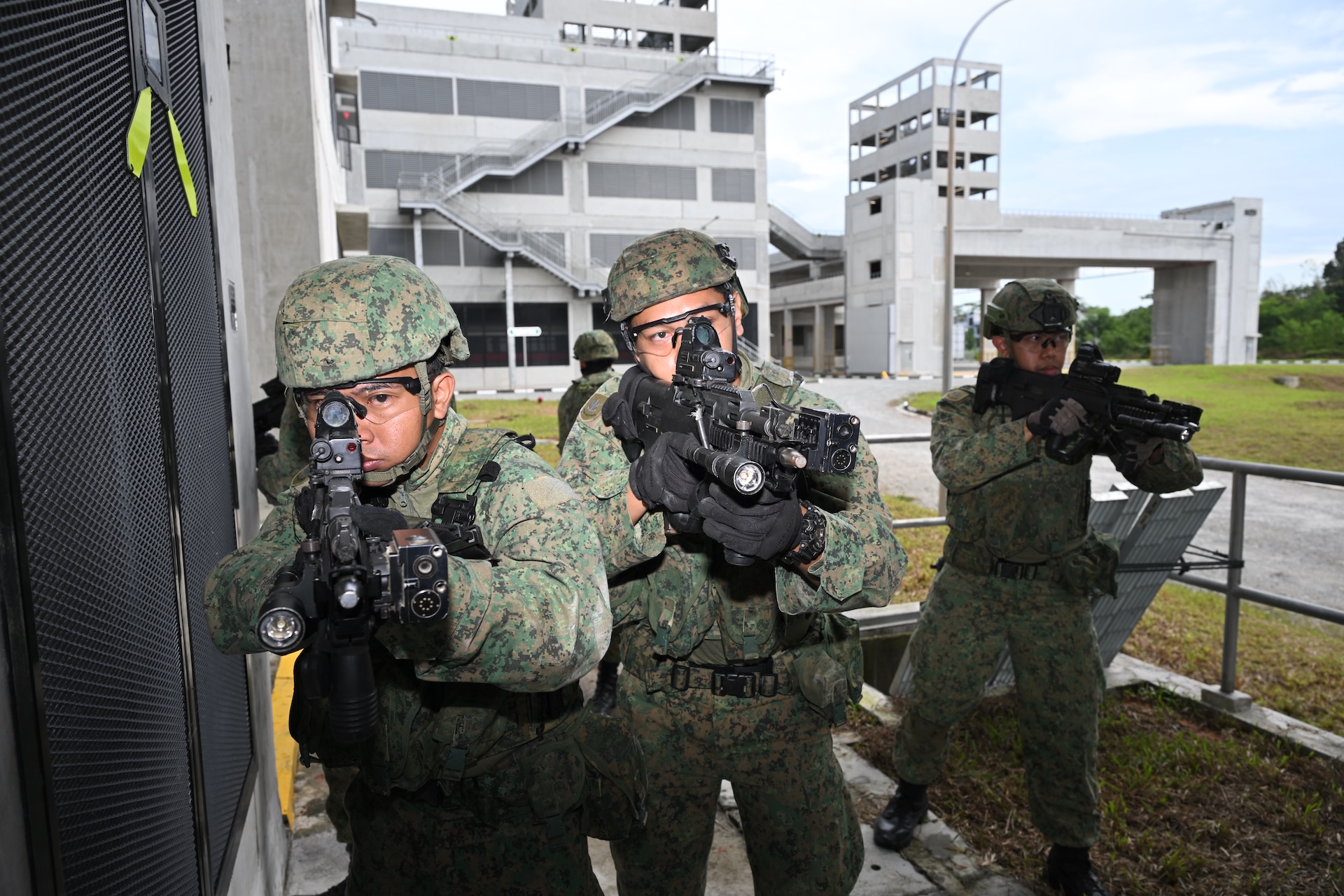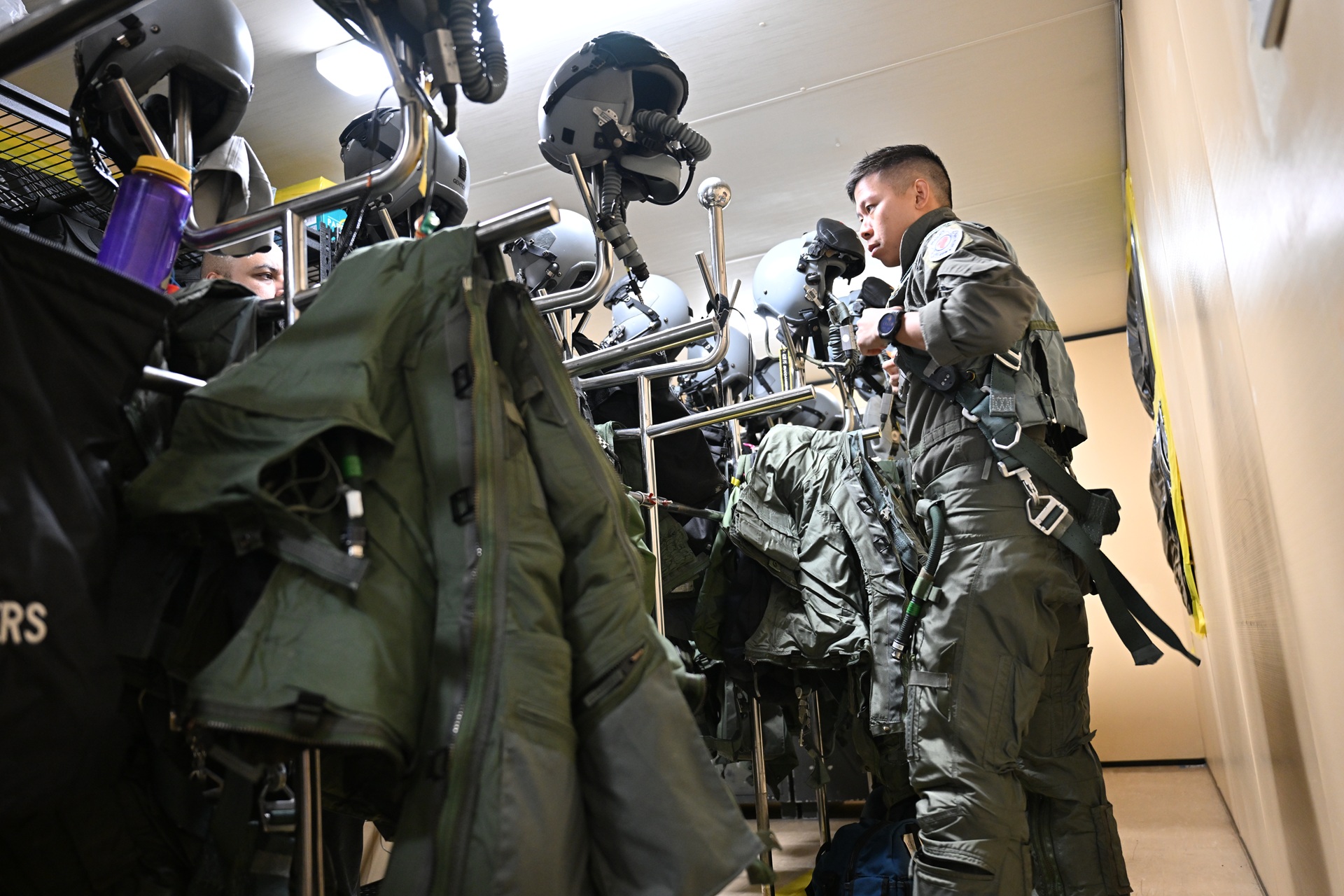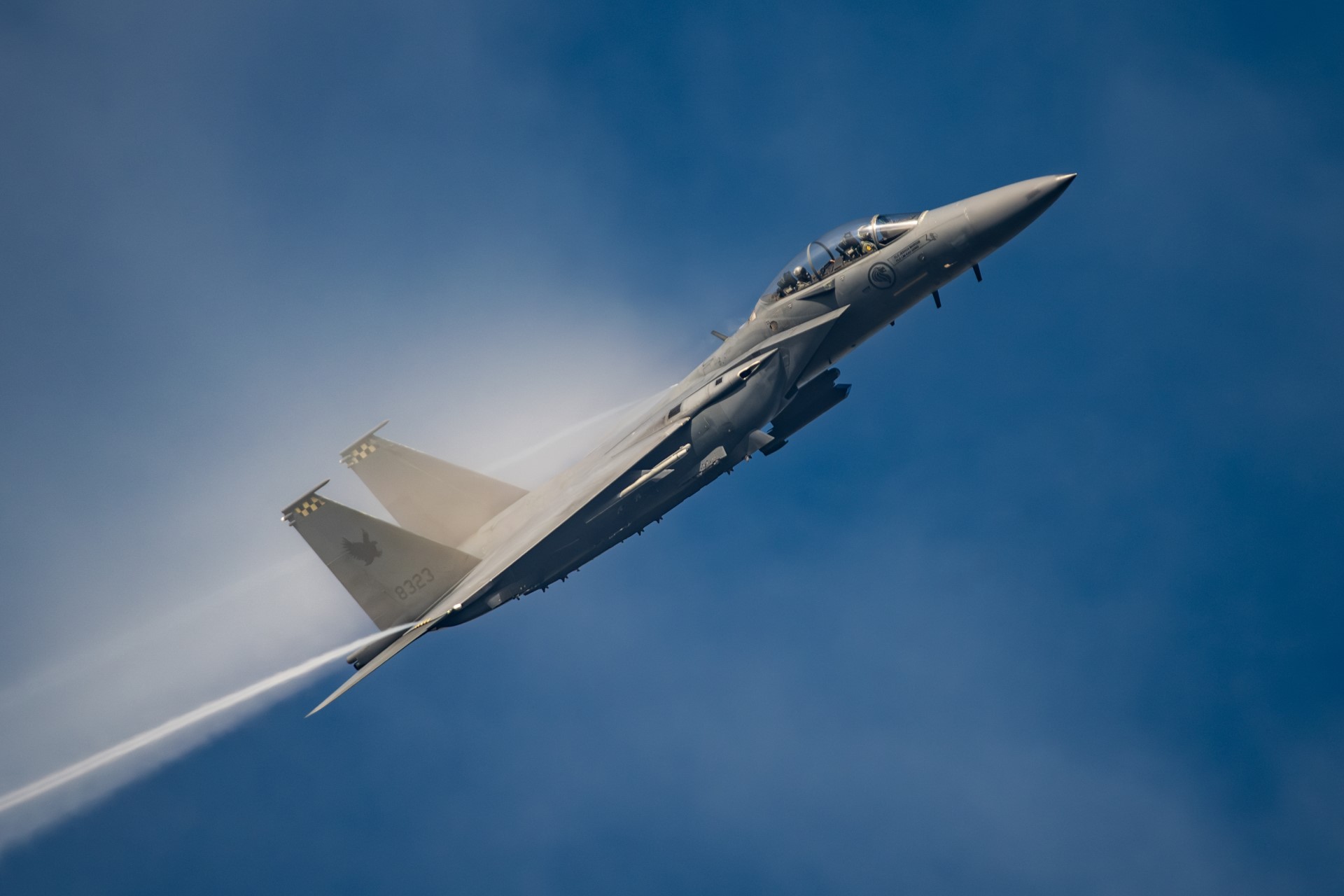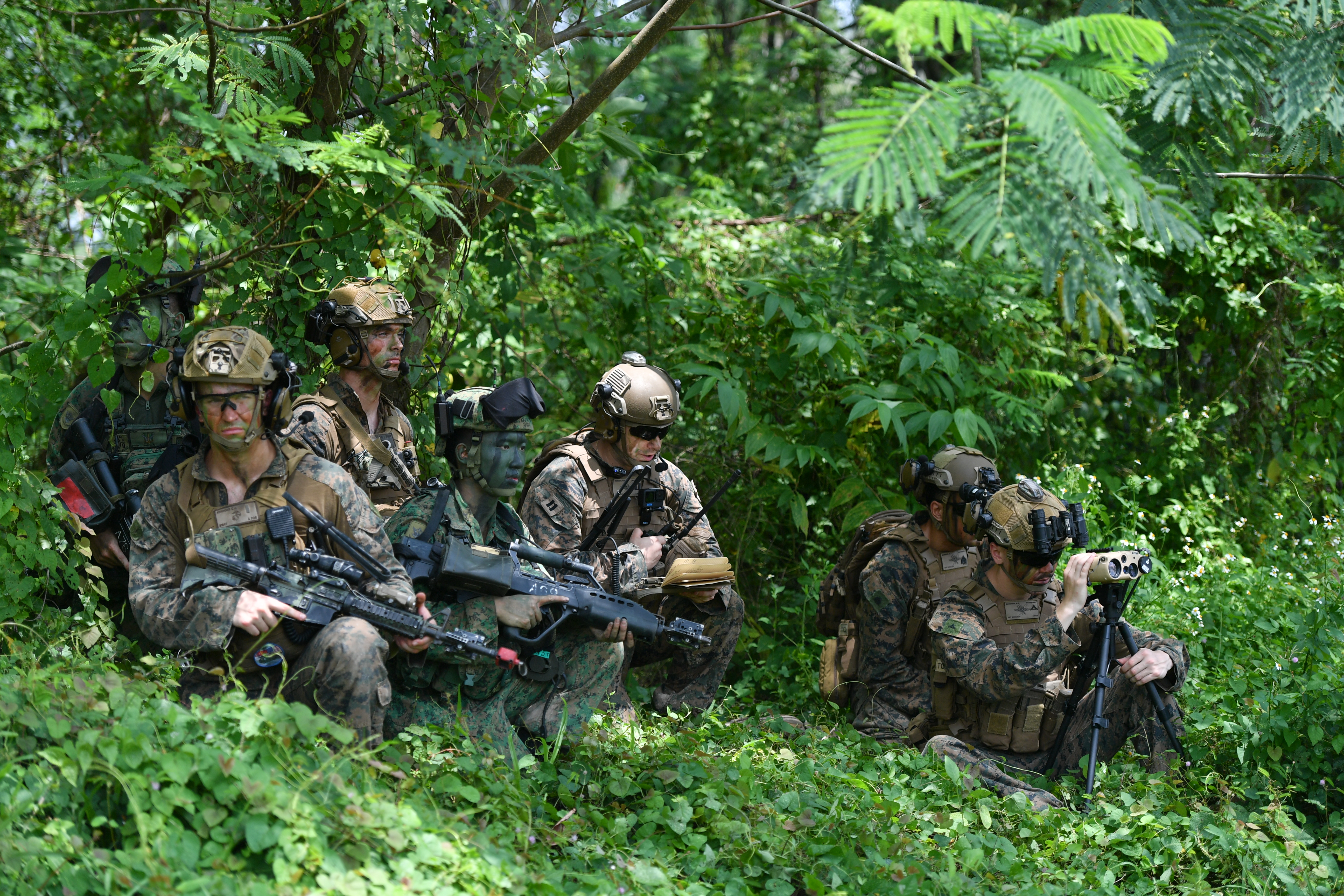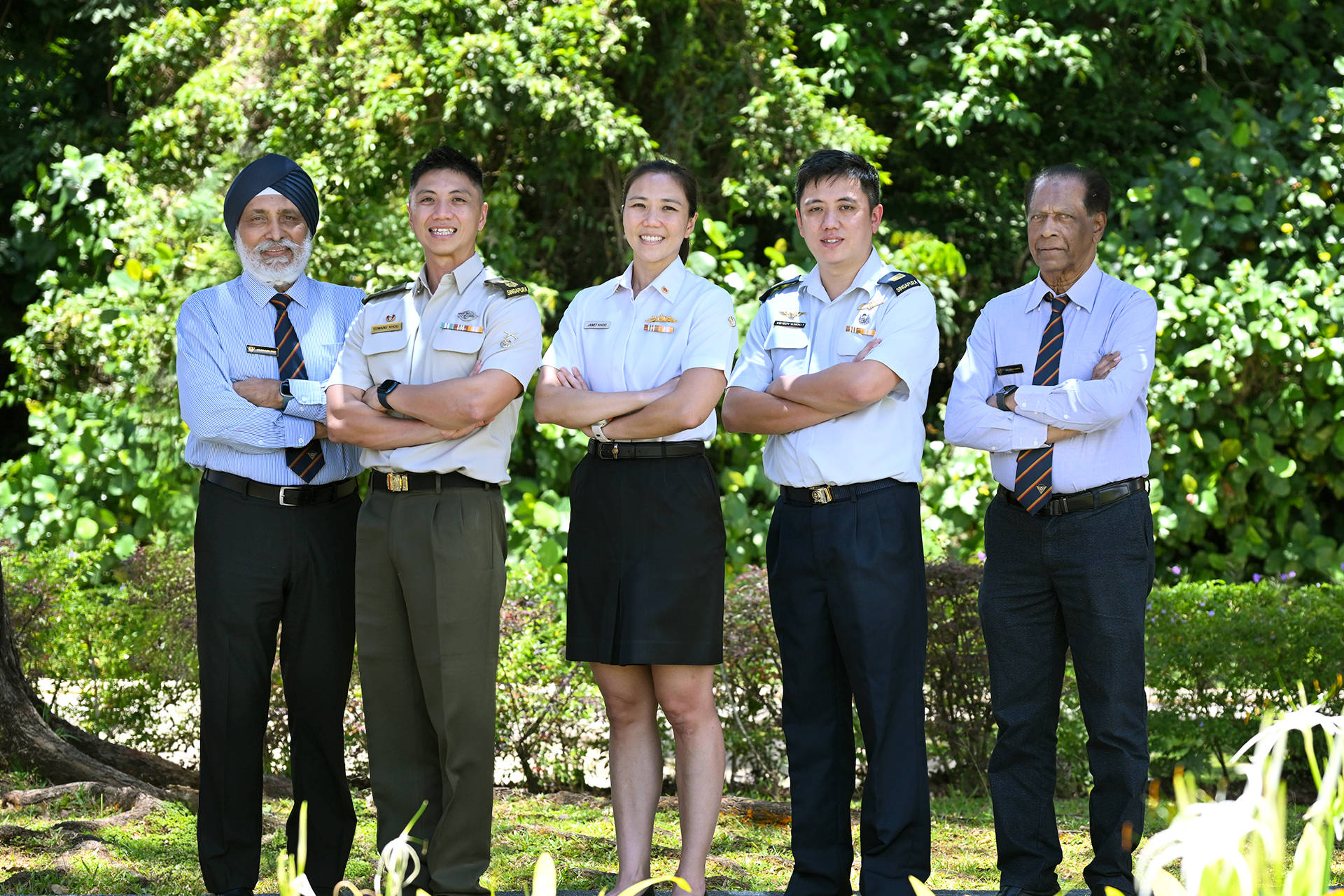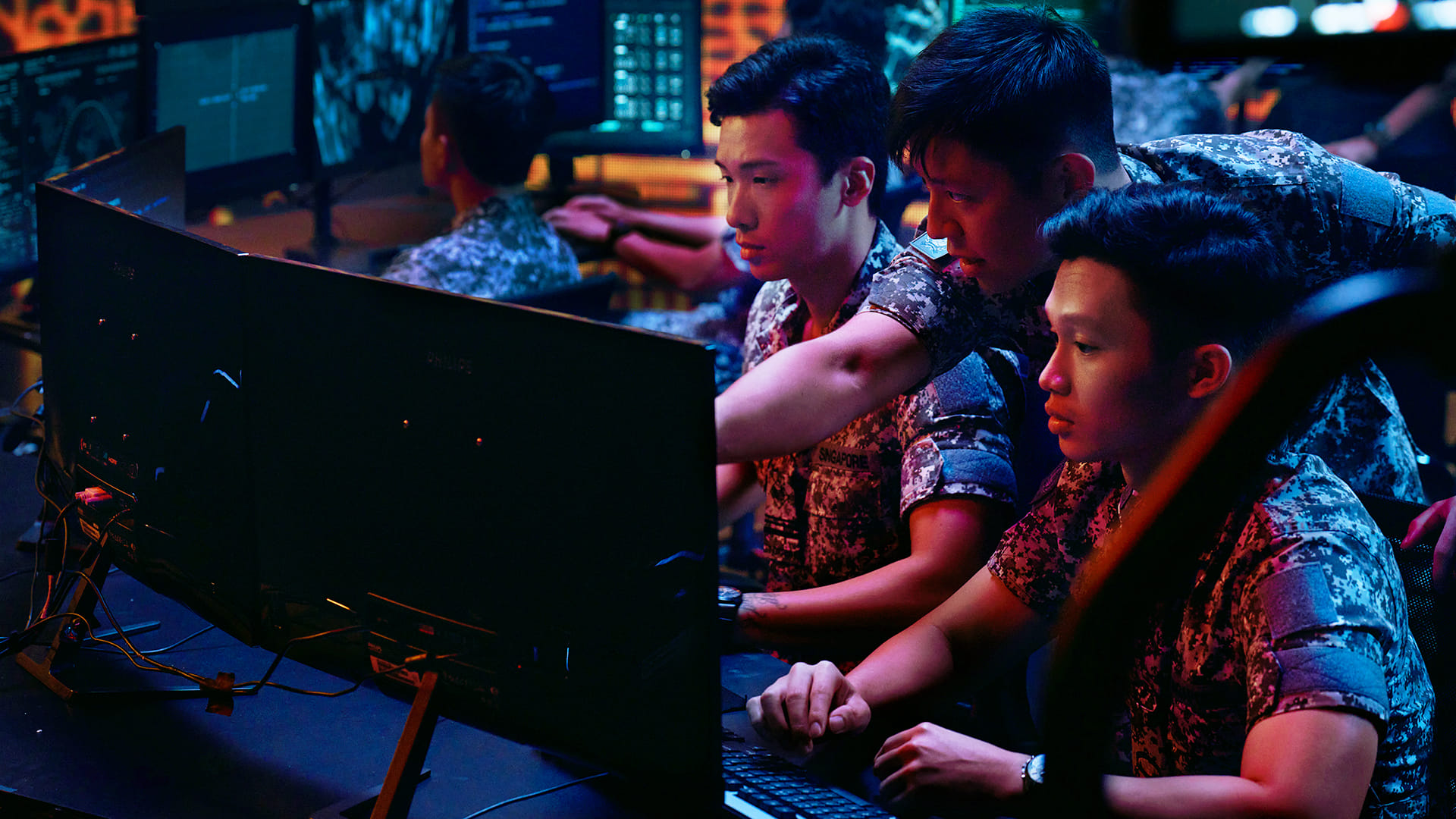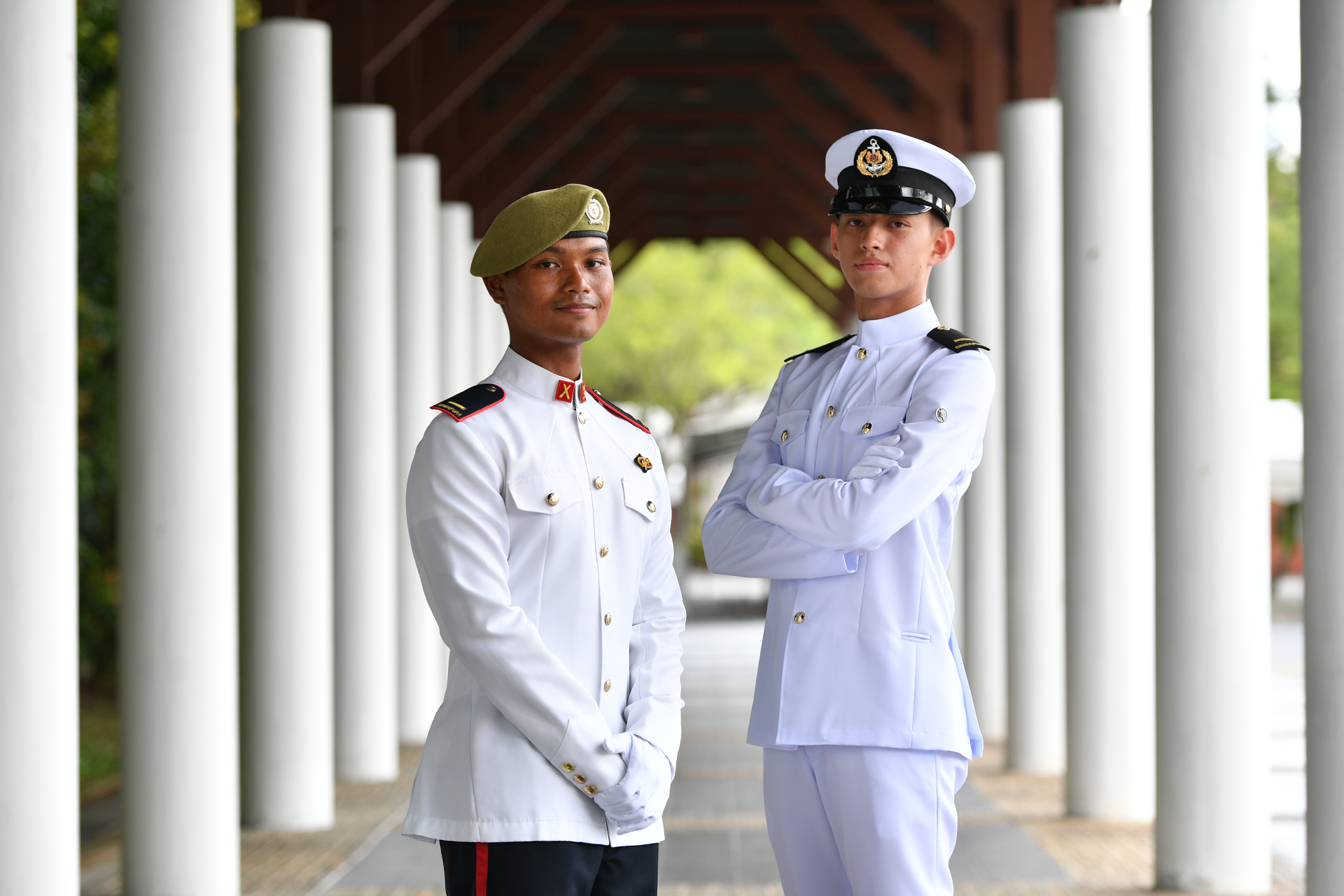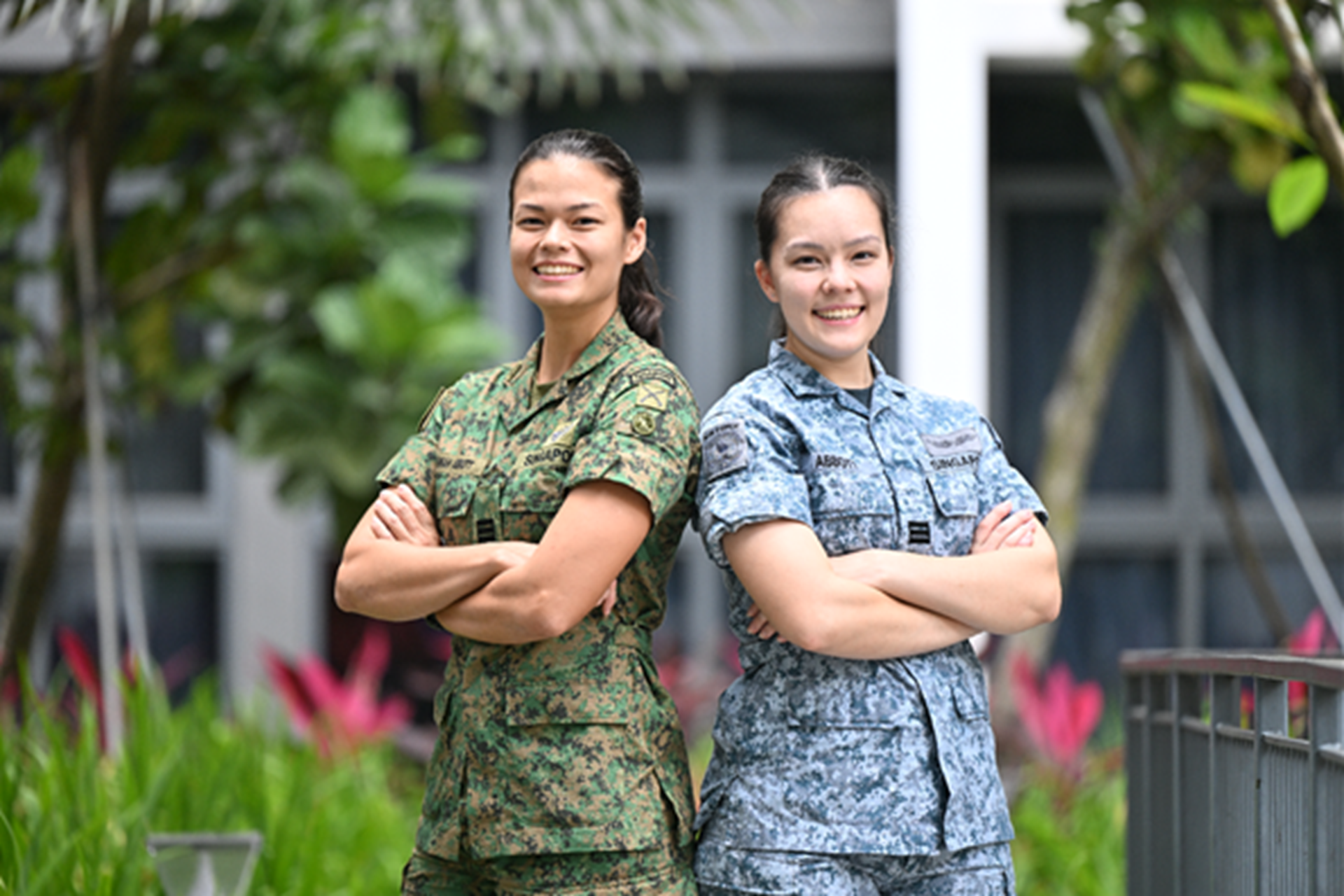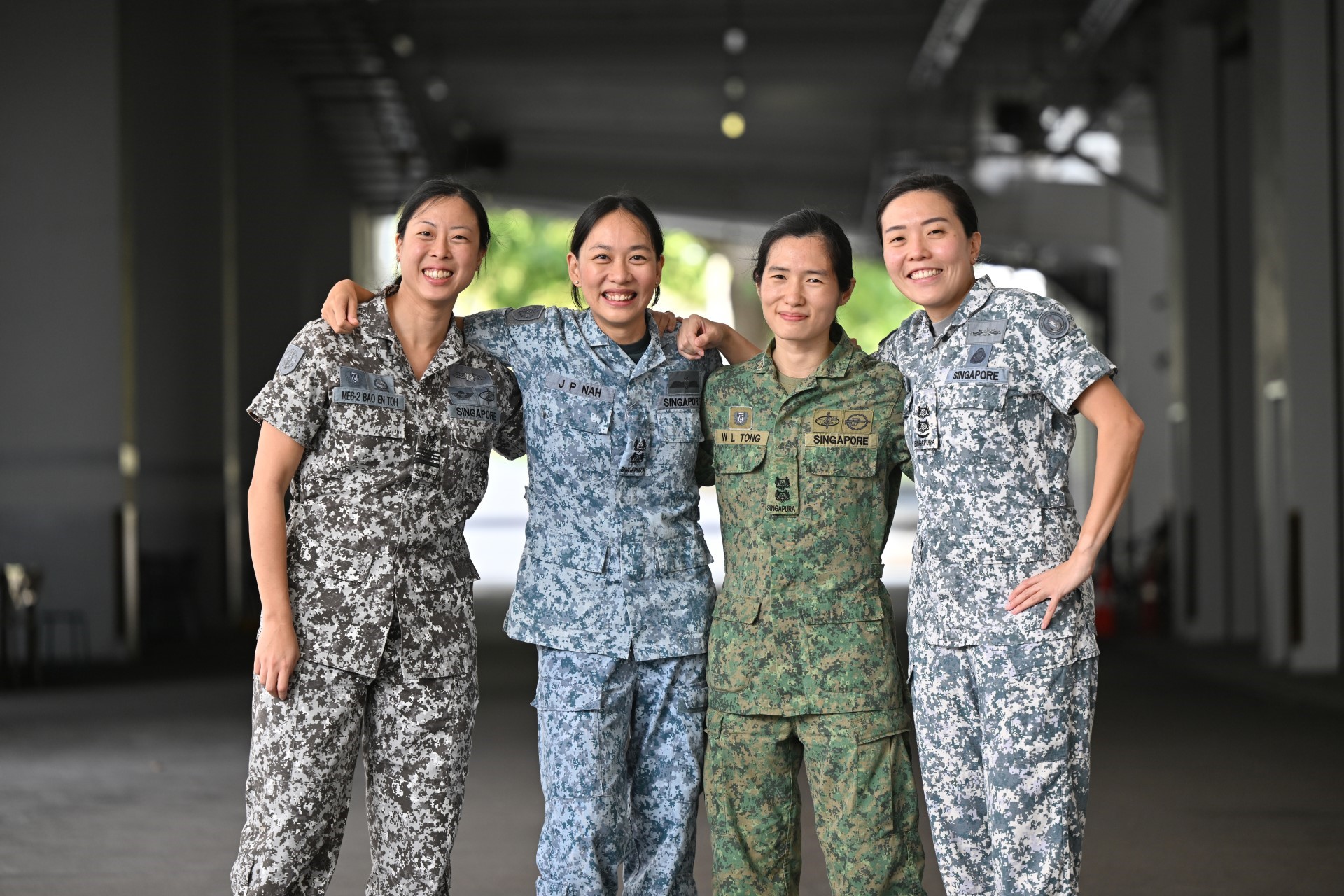IN THE COMPANY OF PEACEKEEPERS
STORY // David Yeo
PHOTO // David Yeo
As the SAF's support of the United Nations' peacekeeping effort in Timor-Leste enters its fourth year, it has proven its mission- and operational-readiness beyond home shores.
The men and women of the SAF have proven beyond doubt they can take on the challenges. From participating in the International Force in East Timor (INTERFET) in September 1999 and the United Nations Transitional Administration in East Timor (UNTAET) (Feb 2000) to the current United Nations Mission of Support In East Timor (UNMISET), the SAF has helped the world's youngest nation to build a peaceful and secure environment, which is vital for Timor-Leste's nation-building efforts.
Deploying for peace
The SAFs commitment to Timor-Leste (East Timor's new name since May 2002) has grown from an initial contribution of medical and logistics support to INTERFET, to the current deployment of a company of peacekeepers and a Republic of Singapore Air Force (RSAF) helicopter detachment (heli-detachment) operating among some 3,500 international peacekeepers commanded by a senior officer from the SAF.
"This is the first time the SAF is sending such a large contingent of peacekeepers," said MAJ-GEN Tan Huck Gim, who assumed command of the UNMISET Peacekeeping Force in August last year.
"This underlines our commitment to the world as a responsible member of the international community," he added.
The SAF's early participation in UN missions had been restricted to military observers, election monitors and medical personnel.
In May 2001, the SAF deployed a platoon of peacekeepers, which undertook patrolling and security duties. They were deployed with the New Zealand battalion in Cova Lima, in south-western Timor-Leste.
At the UN's request, that commitment was increased to a company-sized deployment in Oct 2002. In addition, four UH-1H helicopters and a 72-man detachment from the RSAF's 120 Squadron deployed to Suai, also in south-western Timor-Leste, to provide aviation support to the UN peacekeeping force.
Mission ready
Before their deployment in Timor-Leste, the first company of peacekeepers underwent rigorous preparatory training in Singapore. Members of the three platoons who had served before them also shared their experiences.
The mission also notched another historic first as the company of peacekeepers included Operationally Ready National Servicemen (NSmen) and Full-time National Servicemen (NSFs). Previous deployments had involved only Regulars.
Integrating Regulars, NSFs and NSmen was a challenge for Officer Commanding, MAJ Foo Chek Boon; who assembled the force in Singapore in July 2002.
"We went through a series of training, live-firing, tactical and peacekeeping exercises. We started working as a company," recalled MAJ Foo.
"The NSFs, being a little bit younger, added zest to the company. On the other hand, the NSmen, who are more experienced, provided stability," he added.
His observation was echoed by Second-in-Command, CPT (NS) Neo Chui Hui, who was based in Belulik Leten.
There were no problems at all in integrating with the Regulars and NSFs," he said.
"I feel that NSmen have more interpersonal skills, and it was easy for us to 'gel' with the rest of the guys, be it NSFs or Regulars."
Serving in a UN mission was also a matter of pride for the RSAF's 120 Squadron, according to heli-detachment commander, MAJ Sunny Yun.
"It is an operational environment and indeed an honour for the squadron to be tasked this mission," he said.
Accolades all round
True to form, the SAF's peacekeepers, heli-detachment, medical and logistics support personnel in Timor-Leste have lived up to the high standards set for them.
Said MAJ-GEN Tan: "Our peacekeepers have interacted well with the Timorese and their peacekeeping counterparts."
"It says a lot about the training we provide to our people, the capability of our equipment and the processes that we develop over the years," MAJ-GEN Tan said.
"Coming to a new country, gaining operational experience and acquitting themselves well. All this demonstrates our operational capability to adjust to any given security situation.
Making a difference
No amount of realistic training could have replicated the actual operations that greeted the peacekeepers, pilots, air crew and ground support personnel when they touched down in Timor-Leste.
Extreme changes in weather conditions each day meant the peacekeepers could be patrolling in sweltering heat of 40 degree Celsius, and manning observation posts in the freezing cold at night.
Patrolling on an undulating terrain, carrying a 30-kilogramme load also proved to be an arduous task that could have broken the spirits of lesser beings.
However, our peacekeepers have taken things in their stride.
"Patrolling is another form of keeping fit," said SSG Segaran, a section commander at the Taroman platoon operating base.
LTA Dzul Gazil, Platoon 2IC at Taroman, added: "The mountainous areas actually make good training grounds for us."
The SAF peacekeepers are based in the villages of Fohorem, Taroman and Belulik Leten in the district of Cova Lima. They carry out different missions, which range from the humanitarian-oriented Civil-Military Affairs to more security-oriented patrols.
The peacekeepers essentially carry out two kinds of patrols - 'green' and 'blue'.
"In Green Patrols, we usually look out for clandestine activities like militia operations, illegal markets or illegal crossings of the Tactical Control Lines," explained SSG Segaran.
During Blue Patrols, the peacekeepers visit villages, keeping in touch with the villagers' needs.
As part of Civil-Military Affairs, the peacekeepers also provide simple medical aid to the villagers, attending to cases of fever, coughs and other minor ailments.
As the peacekeepers settle into familiar routine in a foreign environment, one thing is for sure.
There is no room to let one's guard down under any circumstances. The skills, experience and instincts honed through thorough training have allowed them to ace the test so far.
But the test is not over. Each new day is approached with a single-minded discipline. The situation demands it.
Rising to the occasion
The RSAF's heli-detachment is based at the Air Point of Departure (APOD) in Suai. It plays two important roles in Timor-Leste.
Four RSAF UH-1H helicopters support tactical troop-lift operations for the international peacekeepers of the UNMISET Peacekeeping Force.
Responding to emergencies such as aero-medical evacuations, where time is of the essence, has also become part and parcel of the detachments routine in Timor-Leste.
The mountainous terrain was a new challenge for the pilots and air crew specialists.
Said MAJ Sunny Yun, heli-detachment commander: "Due to the high wind conditions, we had to move incrementally to prepare ourselves to undertake roles that bring us to these regions."
To make sure the detachment soars to the challenges presented, a well-drilled ground support crew is always at hand to prepare any flight, making sure the highest safety standards are met even under the tightest of deadlines.
Since its deployment, the detachment had been tested under various circumstances.
In February, a villager suffered severe bleeding after childbirth in the village of Fohorem. Coordinating closely with the SAF's medical staff at Suai Forward Operating Base, the detachments pilots and support crew swung into action to evacuate the patient to the Slovak field hospital in Suai.
And when riots broke out in Dili in December 2002, the detachment pilots had to quickly deploy Australian peacekeepers to the city, flying through thick smoke billowing from the burning capital city.
Like the company of peacekeepers, no task is too tall for the heli-detachment.
MAJ (NS) Walter Tan, a pilot with the detachment, recalled gearing up for one operation. It was going like clockwork. We made sure we were well-equipped, that we knew what tactics to apply. It all came naturally.
I guess we are what we are, soldiers. We just do what we need to do first, and it was work first, worry later.
Leading the charge
As Commander of the UNMISET Peacekeeping Force (PKF), MAJ-GEN Tan Huck Gim commands more than 3,500 men and women of a multinational peacekeeping force tasked with contributing to the maintenance of the peace and security of a young nation.
The challenge facing MAJ-GEN Tan is multifaceted.
Besides contributing to the maintenance of security, the PKF also helps Timor-Leste's local security forces build up adequate capabilities.
"In the process of doing our work, we will leave behind a legacy. And this legacy depends on two things," said MAJ-GEN Tan.
"One is the stability we leave behind. Second, the condition of the local security forces - when we leave, they must be able to continue maintaining security."
The multinational composition of PKF also presents a unique set of challenges such as cultural and language differences.
MAJ-GEN Tan said: "When we coordinate, we actually take a lot more time than we would if everyone was from a single country."
"We leave nothing to chance. We rehearse many aspects and go down to every detail, with one aim - to avoid misunderstandings," he said.
"The SAF has prepared me somewhat by virtue of the many multilateral and bilateral exercises we have with other defence forces."
"Because we train overseas, because we have many other dealings with our neighbours, interacting with other nationalities is not a rare or unusual thing," he added.
Nevertheless, there is still a need to be mindful when interacting with a community of international peacekeepers.
"I've learnt to be patient. I've reinforced the notion that 'everyone matters' and 'everyone contributes'," said MAJ-GEN Tan.
"If we're not careful, we can miss many important and significant contributions; simply because we are in a hurry and we dont give the individual a chance to articulate or to participate."
MAJ-GEN Tan's personable approach and clarity of direction in his leadership are much welcomed in the PKF.
COL W T Bowen, the Australian Commander of Sector West, said: "MAJ-GEN Tan can get to the essence of complications very quickly and then give you very precise guidance about what is required."
"He does not think of any single one way of doing things; acknowledging that there are parts and parallel ways of doing it. You need that in this sort of environment," he added.
